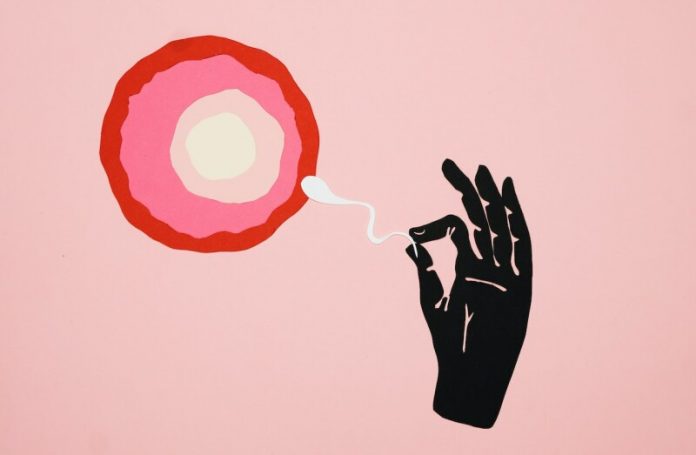What is infertility?
Infertility is characterized by the inability to become pregnant after actively trying for one year or longer.1 There are various infertility determinants. However, it may not always be possible to find the cause and, thus, find infertility treatments. Causes of infertility differ between men and women, but root causes ultimately influence reproductive health.
Diagnosis of infertility
Infertility diagnosis includes a physical examination, medical history including questions relating to previous pregnancies or inseminations, and the length of time trying to conceive.1
Fertility tests for women
- Progesterone-focused blood test
- Chlamydia test
- Ultrasound scan
- X-ray
- Laparoscopy (using a small camera to inspect reproductive organs)
Fertility tests for men
- Sperm analysis
- Chlamydia test
Infertility in women
Infertility in women is often attributed to difficulties with ovulation, while others only affect aspects of the menstrual cycle.1 Problems with ovulation can be attributed to polycystic ovary syndrome (PCOS), thyroid issues, and an illness that causes the ovaries to stop producing eggs before age 40 called premature ovarian failure.1
Some other causes of infertility in women include:1
Scarring from surgeries. Pelvic or cervical surgeries can lead to excessive scarring, which could lead to infertility.
Quality of cervical mucus. Cervical mucus should become thinner during ovulation so sperm can travel easily. Therefore, thick mucus can lead to fertility issues.
Non-cancerous growths. Fibroids can lead to infertility by blocking a fallopian tube or preventing a fertilized egg from securing itself in the womb.
Endometriosis. Endometriosis is when tissue grows outside of the womb lining, like in the ovaries, which leads to scar tissue, and prevents conception.
Pelvic inflammatory disease. Pelvic inflammatory disease can damage and scar fallopian tubes making it difficult to conceive.
Sterilization. Sterilization cuts and ties the fallopian tubes preventing the transport of the fertilized egg to the uterus.
Medications. Some medications affect fertility by making it difficult to conceive. Some of these medications include non-steroidal anti-inflammatory drugs (NSAIDs), chemotherapy medications, and antipsychotic medications.
Recreational drugs. Drugs like cocaine may significantly impair fertility and prevent ovulation.
Infertility in men
Infertility in men is commonly recognized as low sperm production, poor-quality sperm, or sperm mobility dysfunction.1 These abnormal sperm conditions often do not have a clear explanation.
Some causes of infertility in men include:1
Testicular stresses. Infection of the testicles, testicular cancer, mechanical injury, and genetic condition can lead to sperm storage and production issues.
Sterilization. Also known as vasectomy, this procedure involves closing a portion of the tube responsible for carrying sperm from the testicles.
Ejaculation disorders. Some men have difficulty reaching the point of ejaculation. Therefore sperm is not available for reproduction.
Hypogonadism. Hypogonadism is characterized by abnormally low testosterone levels, a hormone crucial for making sperm.
Medications. Some medications can harm a man’s fertility. These may include but are not limited to anabolic steroids, chemotherapy medications, and anti-inflammatory medications like sulfasalazine.
Recreational drugs. Drugs such as cocaine may significantly impair semen quality.
Infertility treatments
There are three main types of fertility treatments available. These include medications, surgical procedures, and assisted conception methods.1
Medications
- Clomifene – promotes ovulation
- Tamoxifen – used for those experiencing ovulation problems
- Metformin – beneficial for women with PCOS
- Gonadotrophins – help stimulate ovulation
Surgical procedures
- Fallopian tube surgery for women
- Laparoscopic surgery for women
- Surgery to relieve a blockage of sperm in men
Assisted conception
Intrauterine insemination (IUI). IUI induces fertilization by introducing sperm into the uterus using a thin plastic tube.
In vitro fertilisation (IVF). IVF involves fertilizing an egg in a lab dish, followed by its implantation into the woman’s uterus.
Egg and sperm donation. A person’s healthy eggs or sperm may be used to compensate for a fertility issue.
Infertility is not a dead end to conception
Difficulties with conception do not have to mean that having a child is impossible. Thanks to ongoing research, causes of infertility and associated infertility treatments are available.
References
1. National Health Service (NHS). (2021, October 28). Infertility – Treatment. Accessed on March 23, 2022, from https://www.nhs.uk/conditions/infertility/treatment/



